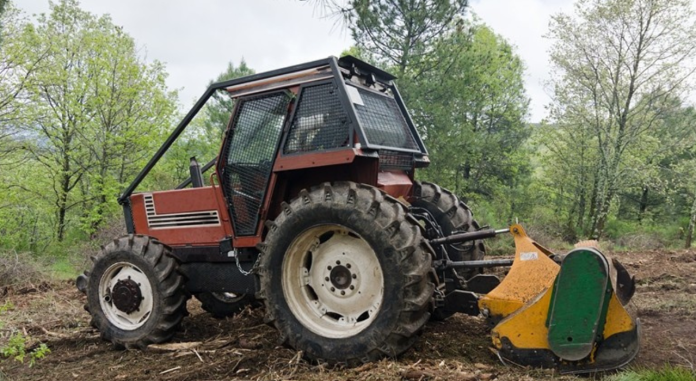Mulcher drum teeth represent critical components inside forestry mulchers, pivotal to their efficiency and performance in land clearing and vegetation control. Designed for sturdiness and wear resistance, mulcher drum teeth are commonly crafted from strong substances such as hardened metal or carbide. This construction guarantees toughness and reduces downtime associated with preservation, enhancing operational efficiency.
Beyond their mechanical features, mulcher drum teeth play a crucial role in environmental sustainability by facilitating mulching as an alternative to more invasive land clearance methods. This technique helps maintain soil integrity, reduce erosion, and improve habitat upkeep. Knowledge of the importance of drum mulcher teeth underscores their important contribution to trendy land control practices, where efficiency, durability, and environmental effects are paramount issues.
Significance Of Mulcher Drum Teeth In Forestry Mulchers
Mulcher drum teeth play an important role in the effectiveness and performance of forestry mulchers, which might be a vital system in land clearing and flora control. Those teeth aren’t mere accessories but critical components that determine the mulcher’s overall performance, durability, and capability. Here’s an in-depth look at the importance of mulcher drum teeth in forestry mulchers:
Cutting and Shredding Efficiency
Mulcher drum teeth are designed to reduce plant life, bushes, shrubs, and other biomass successfully. They arrive in numerous styles and sizes, depending on the intended use and the type of cloth being processed. The performance of the mulcher drum tooth immediately affects the velocity and thoroughness with which the mulcher can clear flora. Properly designed teeth ensure that the cloth is cut cleanly and shredded effectively, lowering the workload at the mulcher and enhancing normal productivity.
Durability and Wear Resistance
Forestry mulching involves processing hard substances like tree trunks, branches, rocks, and soil. Mulcher drum teeth are subjected to sizeable wear and tear at some stage in operation. Consequently, they may normally be crafted from high-power materials, which include hardened steel or carbide. Carbide-tipped teeth are particularly valued for their advanced sturdiness and resistance to abrasion. The durability of those teeth reduces renovation downtime and substitute costs, ultimately making them cost-effective.
Versatility in Different Environments
Forestry mulcher’s drum teeth are utilized in a variety of environments, from dense forests to urban landscapes and agricultural settings. Mulcher drum teeth are designed to perform optimally in unique situations. For instance, teeth with an extra competitive slicing part are suitable for thick brush and tree limbs, while finer teeth can be used for mulching smaller plants and undergrowth. The ability to conform to tooth designs allows mulchers to address various duties effectively.
Impact on Mulcher Performance
The layout and association of the mulcher’s drum teeth significantly influence the mulcher’s usual performance. Teeth are strategically positioned alongside the drum to ensure continuous reduction and shredding of cloth as it passes through. Additionally, the spacing between the teeth influences the scale of the shredded cloth. Optimal tooth placement and spacing are essential for attaining the favored mulching consequences, whether or not for land clearing, plant management, or soil stabilization.
Maintenance Considerations
Ordinary protection of mulcher drum teeth is important for optimum performance and durability of the mulcher. This includes polishing or changing teeth as they go through the years. A few mulchers are prepared with brief-exchange structures that permit operators to replace teeth without problems within the subject, minimizing downtime. Right protection no longer only extends the existence of the tooth, but additionally ensures the mulcher operates correctly for the duration of its carrier life.
Environmental and Operational Benefits
Efficient mulcher drum teeth make contributions to environmentally friendly land control practices by decreasing the need for burning or hauling plants. Mulching also helps improve soil health with the aid of returning natural count in shredded form. Moreover, the ability to finely mulch material reduces the chance of hearth spread in wildfire-prone regions through developing firebreaks and decreasing fuel loads.
Remarks
Mulcher drum teeth are essential to the capability and effectiveness of forestry mulchers in land clearing and plant life management. Their layout, material composition, and preservation at once affect the mulcher’s reducing efficiency, sturdiness, and versatility throughout specific environments. By understanding the significance of mulcher drum teeth, operators and executives can make informed decisions to optimize mulcher overall performance, lessen operational costs, and sell sustainable land control practices.











